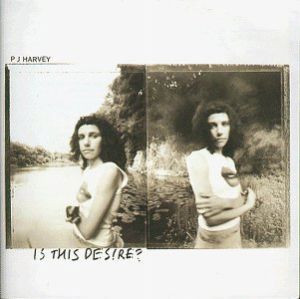
- Format: MP3

Retreating from the limelight after the tour for To Bring You My Love, PJ Harvey returned to her small hometown of Yeovil and isolated herself from most pop trends, eventually writing the material that would come to comprise her fourth album, Is This Desire? Released over three and a half years after To Bring You My Love, Is This Desire? has all the hallmarks of a record written in isolation; subtle, cerebral, insular, difficult to assimilate, it's the album where Polly Harvey enters the ranks of craftsmen, sacrificing confession for fiction. It's an inevitable transition for any artist, especially one as lyrically gifted as Harvey, and though her words are more obtuse and not as brutal, painful, or clever, she still draws some effective character sketches. Similarly, the music on Is This Desire? is hardly the immediate, blunt force that characterized her first albums, nor is it the grand theater of To Bring You My Love — it takes its time, slowly working its way into the subconsciousness. There are a few guitar explosions scattered throughout the record, but it's primarily a series of layered keyboards, electronic rhythms, and acoustic guitars; it's so quiet that at times it barely rises above a murmur, and occasionally floats away without leaving a lasting impression. It seems to challenge the listener to accept it on its own grounds, but once you dig deeper, it winds up offering diminishing rewards. It is more concerned with texture than any of her previous records, but it doesn't push forward enough — it's either standard hard rockers or mournful ballads underpinned by lite electronica beats, which would have more impact if they were more pronounced. Since Harvey is an extraordinarily gifted songwriter, the album is hardly devoid of merit, but it's her least focused or successful record to date.